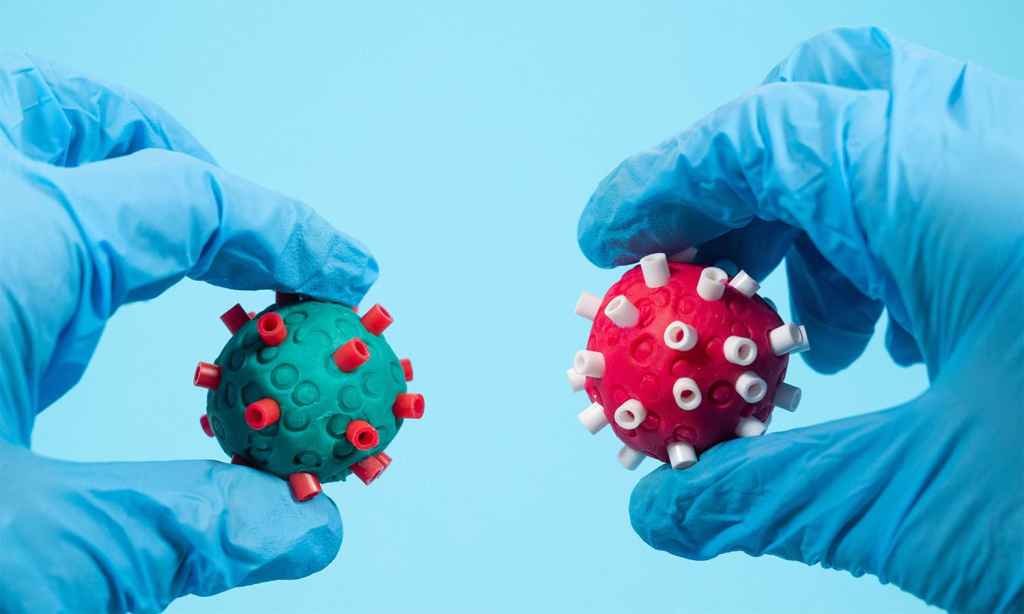The COVID flavour of the month is undoubtedly omicron. The new variant, first identified in Botswana and South Africa, rapidly became the dominant strain in southern Africa and then most of the world, including Australia.
Omicron is thought to be at least twice as infectious as delta, already much more infectious than OG COVID, which is obviously scary. However, data coming from South Africa and Britain suggests that the virus results in milder symptoms than earlier variants. This has lead to our current health policy, which appears to be ‘let the virus rip through the community to build herd immunity.’
It’s a bit of a gamble, but it is one that appears to be paying off – for now. While case numbers are alarmingly high, hospitalisations and deaths remain relatively low in comparison and we live in hope that it stays that way. Omicron has been shown to have a hospitalisation rate at least 50 to 70% lower than delta, which is great news, although that’s not to say that delta has gone away.
As a result, it feels like everyone and their dog is catching the disease right now and chances are that you know someone who has had COVID whereas this would have been a rarity just a few months ago.
Getting COVID while double or even triple vaxxed has proven to be not the terrifying thing that we thought it might be. Although its still a huge concern for those who have underlying health conditions or cant get the vaccine, it’s been proven over and over that those who are vaccinated and get COVID typically recover fairly quickly.
Having two or more vaccines and then getting COVID is thought to produce a “super immunity,” with researchers suggesting that this immune response is likely to be highly effective against other strains of the virus.
However, having COVID once does not mean that you can’t get it again. Depending on the strain you get, you are likely to be more protected than if you haven’t had it, but that doesn’t fully play out for delta.
NSW Health advises that “People who have recovered from COVID-19 have a low risk of getting it again in the month after infection as most people develop some immunity.”
While most people will be unable to tell which variant of the virus they’ve had, omicron appeared to account for nearly 80% of new cases at the end of December. With the vast spikes in cases at the start of January and the heightened transmissibility of omicron, its probably a safe bet to assume that if you’ve had COVID in the past few weeks or you catch it in the next few, it’s likely to be omicron.
Because of the highly mutated structure of omicron, those who have previously had delta are still susceptible to omicron however those who catch omicron are likely to be more resistant to delta and previous strains of the virus. This is good news for Australia, as previous cases of COVID have been low.
The evidence however is not entirely clear cut, as the Imperial College London study that showed that those who have had COVID infections previously are no longer as immune to newer strains also showed that omicron has a 5.4 times higher reinfection rate than previous strains.
This information indicates that those who have had a previous infection might have as low as 19% protection against omicron.
While that data used information taken from South African cases, it’s not yet clear what the reinfection risk of omicron is if you’ve only had omicron before as the strain is still very new. However, catching the exact same virus again is likely to be the least problematic as your body will have that immune memory of that same virus.
As we wait for more data on the issue, it appears clear that while you can certainly get omicron again, the chances of catching it in the month following infection are low. Getting it again months later is possible and indeed probable given the case numbers at present, however catching this same strain twice is unlikely to cause major issues.
Read more stories from The Latch and subscribe to our email newsletter.







